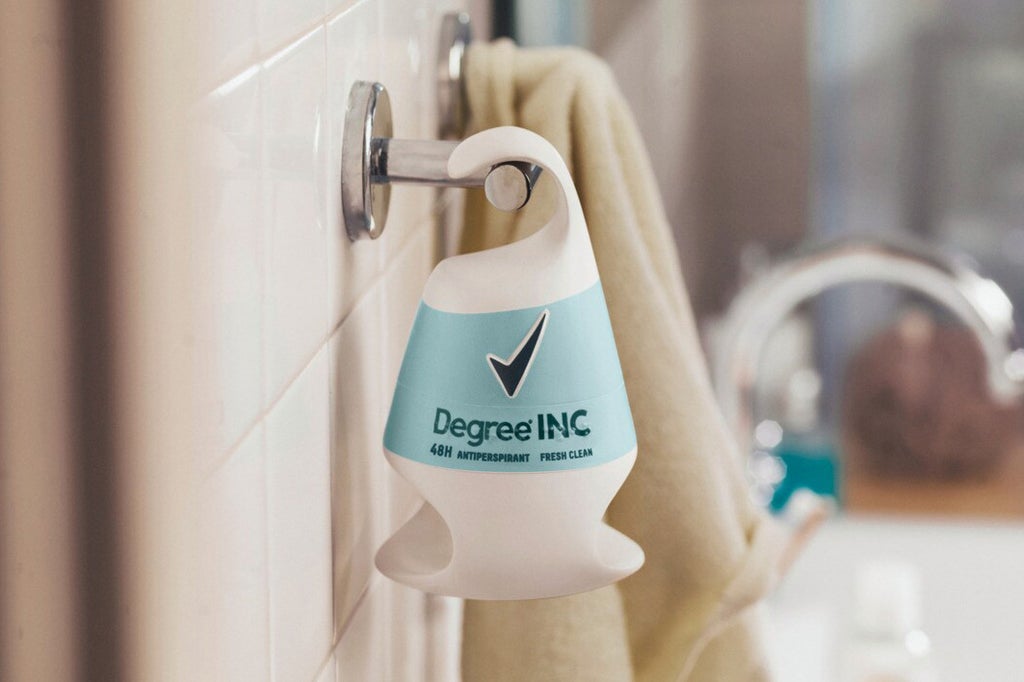
An exciting new product innovation will soon be hitting the market: Degree just released the world’s first “adaptive deodorant,” Degree Inclusive, specifically designed for people living with visual and motor disabilities.
More than one in five Brits live with a disability, yet products are still largely manufactured without considering the needs of the community. The deodorant — which was developed through consulting people living with disabilities, occupational therapists, engineers, and expert consultants around the world — was created with the goal of making application easier and more accessible for those living with mobility limitations or a visual impairment.
Unilever, Degree’s parent company, started its engineering process by considering the various challenges people with disabilities face when using a traditional stick deodorant, then reimagining the design. “Degree Inclusive challenges what a deodorant product should be,” explains Aline Santos Farhat, EVP of Global Marketing and Chief Diversity and Inclusion Officer at Unilever. “It’s a breakthrough, accessible design that genuinely serves the needs of people with disabilities.”

The Degree Inclusive deodorant features a number of innovative ergonomic details: a hooked handle for one-handed use, magnetic closures to make it easier to remove and replace the cap, enhanced grip placement, a braille label for users with vision impairment, and a larger roll-on applicator, which means fewer swipes are needed. Prior to launch, the product was beta tested in partnership with The Chicago Lighthouse, Open Style Lab, and Muscular Dystrophy Association. Degree invited 200 people with disabilities to test out the deodorant and give their honest feedback to make sure no consideration was forgotten.
While undeniably a step in the right direction, Degree Inclusive shows that the beauty industry still has a ways to go in terms of inclusivity. The offerings have improved in recent years, thanks to brands like Fenty Beauty, which popularised an expansive range of skin-tone shades; Dove, which has thrown its support behind the CROWN Act; and independent brands, like Billie, making waves in the acne positivity and body-hair space. However, while all of those moves are extremely important, people with disabilities have largely been left out of the conversation. We look forward to seeing how the field evolves, with more major companies, like Unilever, thinking about product engineering for all.
Like what you see? How about some more R29 goodness, right here?
Ana de Armas Shares Her “Easygoing” Beauty Routine